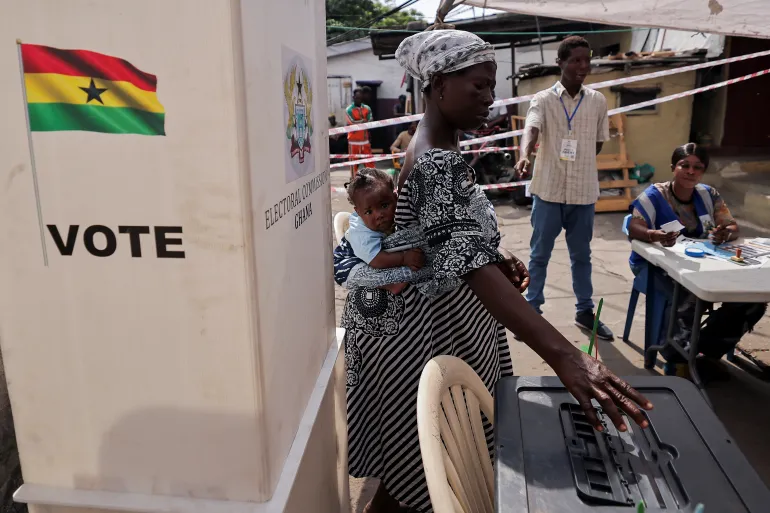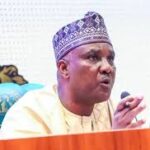The just-concluded election in Ghana has once again brought to the fore a basic truth about economies. Economies behave like babies. So do markets. Both cry when they are not comfortable and need attention. And for as long as the condition over which they are crying lingers, for so long will their cry last.
Ghana, the world’s second-largest cocoa producer after neighbouring Côte d’Ivoire, held the elections amid lingering economic challenges. So, the elections were won and lost on the cry of the economy. Ghana’s economy, which for long has been buffeted on many fronts, cried out the loudest as the election approached, and that produced the result that played out on Saturday, December 7, 2024.
The feelings of most Ghanaians on the state of the economy could be summed up in this statement by a Ghanaian writer, Anthony Afrane, on November 16, about five weeks to the polls: “The economy has crashed and there is the need for a reset. This is what Mahama is promising the people of Ghana”. Mr Afrane added that the “other main issue has to do with unemployment, especially amongst the youth. He (Mahama) is promising a 24-hour economic policy to create more jobs”.
Youth unemployment is a reality across Africa. For Ghana, the World Bank says the phenomenon is multifaceted, reflecting a broader job challenge in Ghana, and also issues peculiar to the nature and intensity of the youth.
- NPC flags off survey to address child, maternal mortality in Abuja
- Abuja National Mosque to get more imams, digitalise Friday sermons
As in most of Sub-Saharan Africa, says the Bank in a 2022 report, Ghana’s youth population is growing rapidly. They constitute about 36 per cent of Ghana’s total population, with 54 per cent of them living in urban areas. That already paints a familiar picture of urban centres bustling with millions of young men and women full of energy and seeking how and where to dispense that energy. The absence of such employment opportunities is the cause of urban restiveness, crime, squalor, and poverty. Thus, while in 2016, Ghana’s overall unemployment rate was estimated at 11.9 per cent by the bank, youth unemployment was slightly higher at approximately 12.1 per cent.
So, Ghana was primed for a change or reset, in the words of Mr Afrane, as far as the economy is concerned. It is in this context that the statement by Vice President Dr Mahamudu Bawumia is to be understood. “The people of Ghana have spoken, the people have voted for change at this time and we respect it with all humility,” Dr Bawumia, said as he conceded defeat.
The Ghanaian voters re-echoed the cry of the beleaguered economy, and that cry led to the change that we all know. Ghana’s economy needed to be fixed. This has been evident for long, with inflation on an upward surge, reaching 45 per cent in March 2023. But the national inflation rate often masked the real extent of the general price increase. For instance, in July 2024, inflation in the North West and North East regions was 55.8 per cent and 64.2 per cent, respectively.
The magnitude of the challenges was evident on every side. Like most African countries, Ghana’s recent macroeconomic dislocations owe their roots to the combined effects of COVID-19 and the Russia-Ukraine war. These led to an upsurge in fiscal deficit of 15.5 per cent of GDP as revenue and expenditure trajectories diverged. This led to a spike in the debt-to-GDP ratio of 78.3 per cent by 2020, up by 15.4 percentage points from the previous year, according to the World Bank.
As this continued, the government found itself increasingly unable to meet its basic obligations. Debt as a ratio of GDP rose, so did the need for debt servicing, for both local and foreign debts. As this continued, the government was unable to meet its debt servicing obligation, which led to a default.
The financial markets have already recognised the December 7 change initiation. At the close of trading on Monday, the first trading day after the polls, Ghana’s Eurobonds all gained, as their yields began to fall. While the crisis lasted, the country’s Eurobonds took hits several times as their price fell and yields rose, signifying investors’ loss of confidence in the country.
Indeed, the election has allowed Ghanaians to retool and attack the challenges with fresh ideas. The country has done this several times in the past, relying on its great economists and other professionals. In the last decade of the last century, Ghana led other emerging countries in economic reforms. I covered that reform programme, which was led by Dr Kwesi Botchwey, who served as Minister of Finance from 1982 to 1995 under President Jerry Rawlings.
Under the Economic Recovery Programme designed and supervised by Botchwey, Ghana’s nascent Stock Exchange, which began operation in 1990, became the best-performing bourse in the emerging markets in both 1993 and 1994.
This is an opportunity for former President and now president-elect, John Dramani Mahama, to assemble a team of professionals to put the right policies in place that will do those things that the outgoing team could not do.

 Join Daily Trust WhatsApp Community For Quick Access To News and Happenings Around You.
Join Daily Trust WhatsApp Community For Quick Access To News and Happenings Around You.


